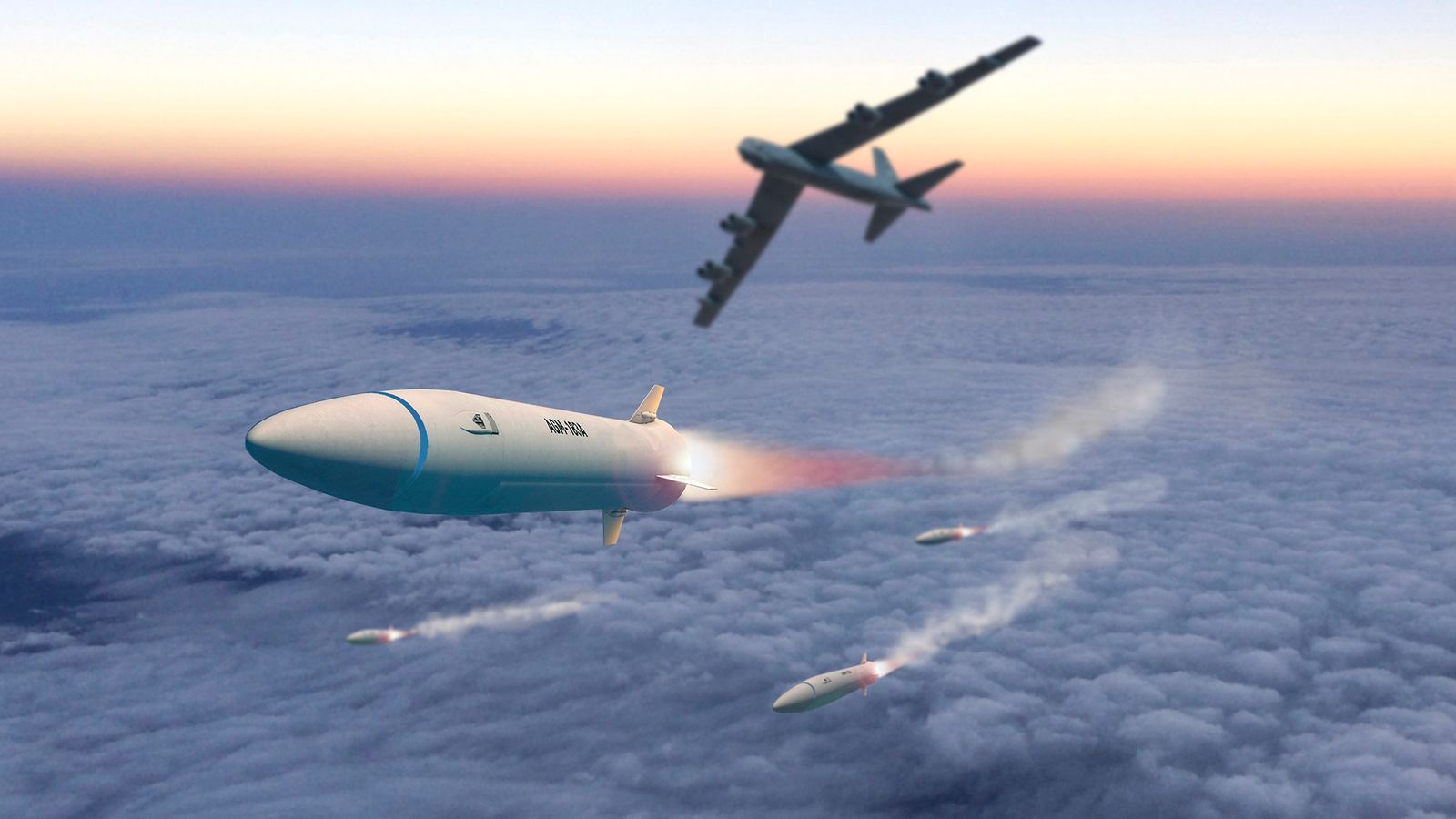UK to develop hypersonic missiles to catch up with China and Russia by 2030 - report
Britain plans to equip its armed forces with a homegrown hypersonic cruise missile by the end of the decade, according to a report.

Military chiefs are under pressure to catch up with China, Russia and the US by developing a weapon capable of flying at speeds higher than Mach 5 - five times the speed of sound, according to The Sunday Telegraph.
The Ministry of Defence wants the missile to be designed and built in the UK and to enter service by 2030.
Plans are at an early stage, the newspaper reported, although there is no decision on whether the missile will be launched from land, sea or air.
It comes after Prime Minister Rishi Sunak pledged to spend 2.5% of gross domestic product on defence by 2030.
Ballistic weapons can also reach hypersonic speeds but the difference is in manoeuvrability - ballistic weapons generally have fixed paths but the path of a hypersonic weapon can be changed after launch, making it difficult to destroy.
The US, Russia and China are the main players in the hypersonic weapons race but other countries, such as North Korea, claim to have tested hypersonic weapons.
US tests hypersonic weapon with speeds 'five times greater than speed of sound'
The development of hypersonic capabilities is part of Pillar Two of AUKUS - a defence and security pact between the UK, Australia and the US.
Last month the US tested a hypersonic cruise missile on an atoll in the Marshall Islands in a message to its rival in the Pacific - China. It is the latest in a number of hypersonic weapons tests the country has completed in recent years.
A spokesperson for the MoD would not comment in detail on the development of Britain's hypersonic missile capability, citing national security, but confirmed "hypersonic technologies to further develop UK sovereign advanced capabilities" were being pursued.
"We continue to invest in our equipment to meet current and future threats," they added.
-sky news







